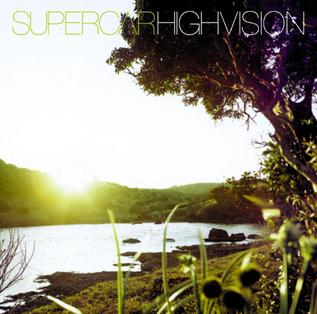Highvision
2002 studio album by Supercar From Wikipedia, the free encyclopedia
Highvision is the fourth album by the Japanese alternative rock[2] band Supercar. It was released on April 24, 2002, and peaked at 11th place on the Oricon Albums Chart.[3][4] The album is notable for Supercar's continued experimental trajectory starting from their previous album Futurama[5] expanding upon it in Highvision, with the single "Strobolights" not even containing a guitar. The song "Storywriter" was used in the soundtrack of the anime Eureka Seven, which also contains several references to music from the 1980s and 1990s.[6][7]
| Highvision | ||||
|---|---|---|---|---|
 | ||||
| Studio album by | ||||
| Released | April 24, 2002 | |||
| Genre | Alternative rock, experimental rock, electronica | |||
| Length | 48:13 | |||
| Label | Ki/oon Music | |||
| Producer | Supercar | |||
| Supercar chronology | ||||
| ||||
| Singles from Highvision | ||||
In 2007, Rolling Stone Japan listed Highvision as number 86 among its "100 Greatest Japanese Rock Albums of All Time."[8]
Track list
| No. | Title | Length |
|---|---|---|
| 1. | "Starline" | 4:04 |
| 2. | "Warning Bell" | 4:30 |
| 3. | "Storywriter" | 4:23 |
| 4. | "Aoharu Youth" | 5:09 |
| 5. | "Otogi Nation" | 3:29 |
| 6. | "Strobolights" | 4:06 |
| 7. | "I" | 6:14 |
| 8. | "Yumegiwa Last Boy" | 4:11 |
| 9. | "Nijiiro Darkness" | 6:40 |
| 10. | "Silent Yaritori" | 5:27 |
References
External links
Wikiwand - on
Seamless Wikipedia browsing. On steroids.
